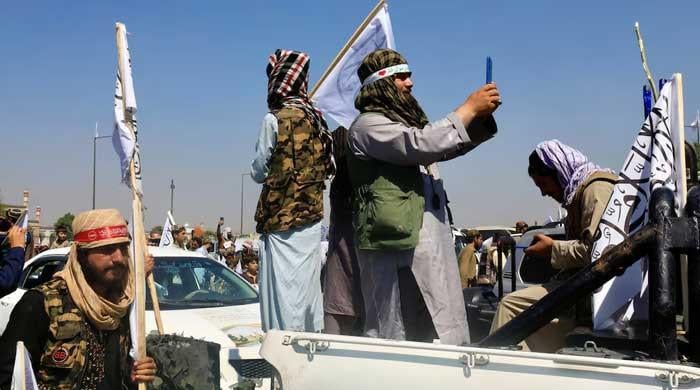Russia Removes Taliban’s ‘Terrorist’ Designation
In a symbolic move aimed at strengthening relations with Afghanistan’s current leadership, Russia’s Supreme Court has revoked the Taliban’s designation as a “terrorist organisation”.
The Taliban gained control in Afghanistan in August 2021, coinciding with the withdrawal of American forces who had been supporting the internationally recognised government.
Since then, Moscow has been working to normalize its relationship with the Taliban, viewing them as a possible economic partner and collaborator in combating terrorism, and describing the US withdrawal as a “failure”.
According to the TASS news agency, Supreme Court Judge Oleg Nefedov announced the ruling, stating, “The previously imposed prohibition on the Taliban’s activities—listed on the unified federal list of organisations recognised as terrorist—has been halted.”
He further stated, “The decision becomes legally binding immediately.”
Following several visits to Russia by high-ranking Taliban representatives, Russia’s Prosecutor General requested the court last month to remove the group’s “terrorist” label.
A Taliban delegation was present at Russia’s primary economic conference in Saint Petersburg in both 2022 and 2024. Additionally, the group’s leading diplomat engaged with Russian Foreign Minister Sergei Lavrov in Moscow last October.
While the decision to lift the designation does not formally recognise the Taliban, who are pursuing international recognition, it eases potential issues for Russian officials when meeting with the group’s representatives at important gatherings.
Over the past two decades, Moscow’s perspective on the Taliban has changed significantly.
The group’s origins trace back to 1994 during the Afghan Civil War and was primarily composed of former Mujahideen fighters who fought against the Soviet Union in the 1980s.
The Soviet-Afghan war, resulting in numerous casualties for the Soviet Union, was a significant defeat for Moscow and expedited the collapse of the USSR.
In 2003, Moscow designated the Taliban as a terrorist organization due to their backing of separatists in the North Caucasus.
However, with the Taliban’s resurgence in 2021, Russia, along with other regional countries vying for influence, has been compelled to adjust its strategy.
Following the Taliban takeover, Russia was the first nation to establish a business representative office in Kabul and has revealed intentions to utilise Afghanistan as a transit point for gas destined for Southeast Asia.
In July 2024, Russian President Vladimir Putin referred to the Taliban as “allies in the fight against terrorism”.
Both Russia and the Taliban are actively working to eliminate Daesh, also known as Islamic State-Khorasan (IS-K), which has claimed responsibility for deadly attacks in both Afghanistan and Russia, notably the Moscow concert hall attack in March 2024, resulting in 145 fatalities.
Other nations have also aimed to cultivate relationships with the Taliban, although no country has formally recognised them to date.
Kazakhstan declared last year that it had removed the Taliban from its roster of “terrorist organisations”.
China, in 2023, became the first country to assign a new ambassador to Kabul and has established increasing economic ties with the new government.



Comments (0)
No comments yet. Be the first to comment!
Leave a Comment